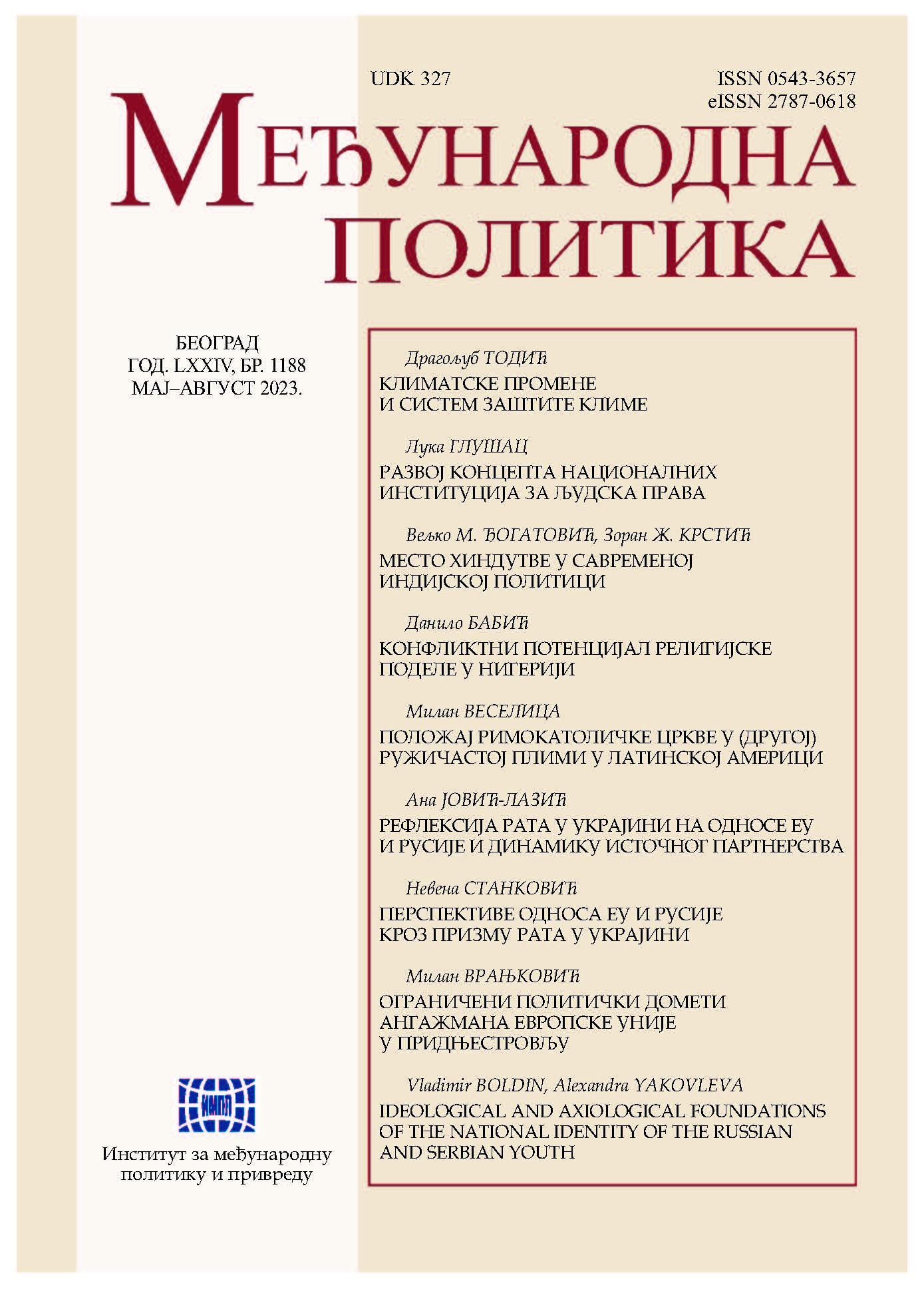Положај Римокатоличке цркве у (другој) ружичастој плими у Латинској Америци: упоредна анализа Никарагве и Бразила
The Position of the Roman Catholic Church in the (Second) Pink Tide in Latin America: A Comparative Analysis of Nicaragua and Brazil
Author(s): Milan VeselicaSubject(s): Politics and religion
Published by: Институт за међународну политику и привреду
Keywords: Roman Catholic Church; left-wing politics; Nicaragua; Brazil; ‘pink tide’; Latin America.
Summary/Abstract: The paper presents a comparative study of the position of the Roman Catholic Church in Nicaragua and Brazil in the conditions of the (new) leftist wave in Latin America. With the intention of understanding the complexity of the current situation and predicting future political behaviour, the author asks the following research questions: What does the attitude of the Roman Catholic Church towards the left-wing authorities in Latin America depend on? The aim of the paper is to explain the current position of the Roman Catholic Church in the so-called second pink tide and predict the development of church-state relations in these countries. The hypothesis is that the political behaviour of the Roman Catholic Church towards left-wing authorities, i.e., determination for confrontation or cooperation, is not conditioned only by the current situation on the ground but, above all, by the deeper institutional and ideological relationship between the church and the state. Using Daniel Philpott's theoretical framework, the author performs a comparative analysis of the relations between the Roman Catholic Church, i.e., national episcopal conferences, and leftist authorities in Nicaragua and Brazil. For this purpose, he uses the methods of content analysis (constitution and laws) and discourse analysis. He concludes that the relationship between the church and the state in Nicaragua represents conflictual differentiation, while in Brazil, consensual differentiation is at work. The author predicts that in the first case, the Roman Catholic Church, through the resistance of the regime, will strive for democracy, and in the second case, it will balance its (currently quite good) position to maintain its current position.
Journal: Међународнa пoлитика
- Issue Year: 74/2023
- Issue No: 1188
- Page Range: 99-119
- Page Count: 21
- Language: Serbian

